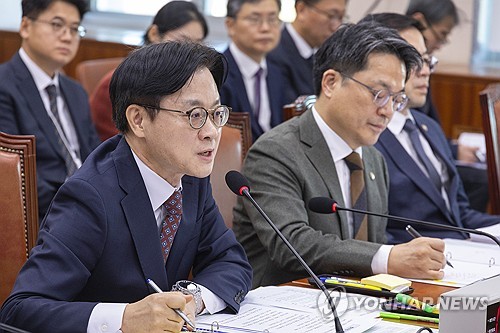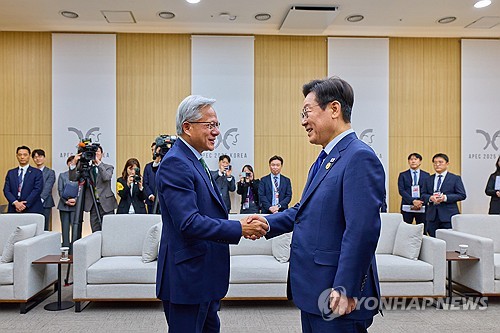(Seoul=Yonhap Infomax) Su Jin Yoo – South Korea’s Minister of Trade, Industry and Energy, Kim Jung-kwan, warned that domestic companies, including those in the petrochemical and steel sectors, are "fighting for survival at the threshold of existence."
Kim emphasized that, amid an uncertain business environment and intensifying competition from China, the government must join efforts to enhance productivity and competitiveness. "Once a company disappears, it is difficult to recreate. We are in an existential crisis," he said. "Establishing a foundation for survival will be the government’s top policy priority."

Appearing on KBS’s ‘Sunday Diagnosis Live’ on the morning of the 23rd, Kim stated, "In China, new companies are created and replaced every month and year, but South Korea’s industrial structure has remained unchanged for years. Companies from 30 or 20 years ago are still the same today," diagnosing that "our industries and companies are stagnating."
He added, "During the Korea-US tariff negotiations, former US Commerce Secretary Rutnik remarked that the US was once number one in shipbuilding and automobiles, but now those companies are gone. Just as shipbuilding disappeared in the US, we too face a crisis where, once companies vanish, it is difficult for them to reemerge. I hope the public, politicians, and media will share the consensus that companies are vital."
As part of this, Kim reaffirmed the government’s commitment to completing the ongoing restructuring of the petrochemical sector in cooperation with industry stakeholders.
"The government will provide legal and institutional support to ease financial burdens, but companies must also make sufficient self-help efforts," he said. "Through this, we must prevent the collapse of foundational industries such as petrochemicals and steel."
Kim also highlighted the importance of the ‘Manufacturing AI Transformation (MAX) Alliance,’ a key initiative led by the Ministry of Trade, Industry and Energy. The plan aims to combine artificial intelligence with manufacturing to maximize productivity and strengthen competitiveness.
Previously, Kim noted that "the issue I have focused on most since taking office is MAX," and that he continued to monitor MAX developments even during the Korea-US tariff negotiations.
On the program, Kim said, "The narrowing gap with China in manufacturing is due to low productivity. By adding AI, we can dramatically boost productivity, reduce trial and error, and save time and costs."

He continued, "Nvidia CEO Jensen Huang, who recently visited Korea, said the country could become a ‘global AI hub’ because it has a wealth of key industrial data. We have abundant ‘data,’ the core raw material of the AI era, as well as ‘technological prowess’ and ‘manufacturing capabilities’ from companies like Samsung and SK—so we have all three elements."
Kim stressed, "MAX also means large corporations will strengthen cooperation with domestic mid-sized, small, and materials companies, not only in the Seoul metropolitan area but also in regional areas, contributing to supply chain localization and the domestic ecosystem. If we fail to implement MAX properly, we will have no opportunities."
However, Kim disagreed with claims that the recently finalized ‘2035 National Greenhouse Gas Reduction Target (NDC)’ places excessive burdens on industry.
The government recently announced a 53–61% reduction target from 2018 levels by 2035 and reported this to the international community.
Kim explained, "The amount industry and companies are required to reduce is about 24%, not 53%. Compared to electricity (68%) and buildings (53%), the reduction required from industry is the lowest in terms of pace."
"Overall, moving toward low-carbon is the right direction. Companies are burdened, but they know there is no alternative," he said. "We will ensure robust financial support for R&D and facility conversion during the low-carbon transition. This is not just an environmental issue but a shared fiscal and industrial issue, and we will turn the low-carbon era into a growth opportunity."
sjyoo@yna.co.kr
(End)
Copyright © Yonhap Infomax Unauthorized reproduction and redistribution prohibited.

